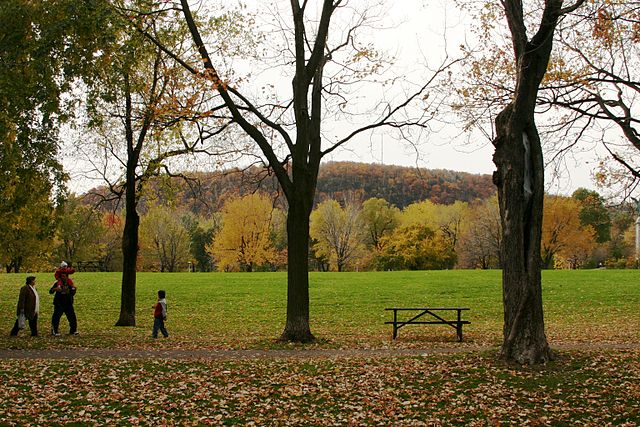What started as a sunny afternoon on March 25 quickly devolved into a mid-pandemic disaster. Around 3:00 p.m. a crowd of students began to party in Montreal’s Jeanne Mance Park, forming a mob-like cluster despite ongoing provincial social distancing regulations prohibiting large gatherings. After two hours of moshing around a makeshift DJ station, the Montreal police shut the gathering down around 7:00 p.m.—but it was too late to mitigate the potential spread of the virus. These students’ disregard for public health demonstrates a lack of empathy and social responsibility, jeopardizes the health of community members, and damages McGill students’ reputation. Students must realize that COVID fatigue is not a valid excuse for putting lives at risk.
Montreal’s anti-mask and anti-curfew protests capture just a fraction of Quebecers’ frustration with red-zone regulations. Students, in particular, feel robbed of the parties and social gatherings closely associated with university culture. These sentiments are understandable, and the temptation to let loose after months of lockdown is natural. The beginning of spring has also sparked nostalgia for events like Frosh and OAP—a painful reminder that COVID-19 cancels the ‘play’ side of McGill’s unofficial ‘work hard play hard’ motto. Still, students must resist the urge to equate the end of Montreal’s winter to the end of the pandemic.
After losing my grandmother to COVID-19 last April, I received nothing but support from fellow McGill students. Despite the pain of loss, I was comforted by the apparent commitment of my peers to do their part in limiting the spread of the virus. Ironically, some of the students who posted videos on social media from the thick of Thursday’s crowd were the same people who offered me their heartfelt condolences just 11 months earlier. Considering the copious amounts of knowledge surrounding virus transmission, those who participated in the gathering cannot plead ignorance––by now, students all know that large gatherings are counterproductive to Quebec’s recent progress in reducing case counts.
From the onset of the pandemic, young people have been unjustifiably pointed to as the source of spiking infection rates. Considering that many students have responsibly obeyed regulations, this constant finger-pointing can feel uncalled for. Incidents like the gathering at Jeanne Mance, however, suggest that it may be more warranted than we would like to admit. Although only a fraction of McGill students were involved in the gathering, events like these rightfully anger community members, as large gatherings increase the likelihood of Montreal’s red-zone being extended. While some students will have the luxury of escaping Montreal’s restrictions for the summer, local businesses and essential workers will continue to face the financial and psychological consequences of lockdown measures. If these restrictions work to prevent others from having to say final goodbyes to loved ones on the phone or increase the likelihood of returning to in-person classes, compliance is morally necessary.
The way people responded to my family’s loss demonstrates that students have successfully grasped the role of empathy. However, empathizing with families like mine, who have shown resilience in overcoming the traumas of COVID-19, is not enough. If students are not willing to sacrifice their personal desires to do their part to solve an issue directly impacting their peers and their families, claims of allyship in social causes like Black Lives Matter and anti-Asian racism ring hollow.
With the vaccine rollout underway and the return to relative normalcy within reach, it is counterintuitive to jeopardize the province’s progress––especially with a third wave looming. It is encouraging to see that many students have refused to use the weather as an excuse to behave irresponsibly. However, the actions of students who took part in Thursday’s gathering are a slap in the face to those enduring the loneliness of isolation or dealing with the pain of attending Zoom memorials for their loved ones.








